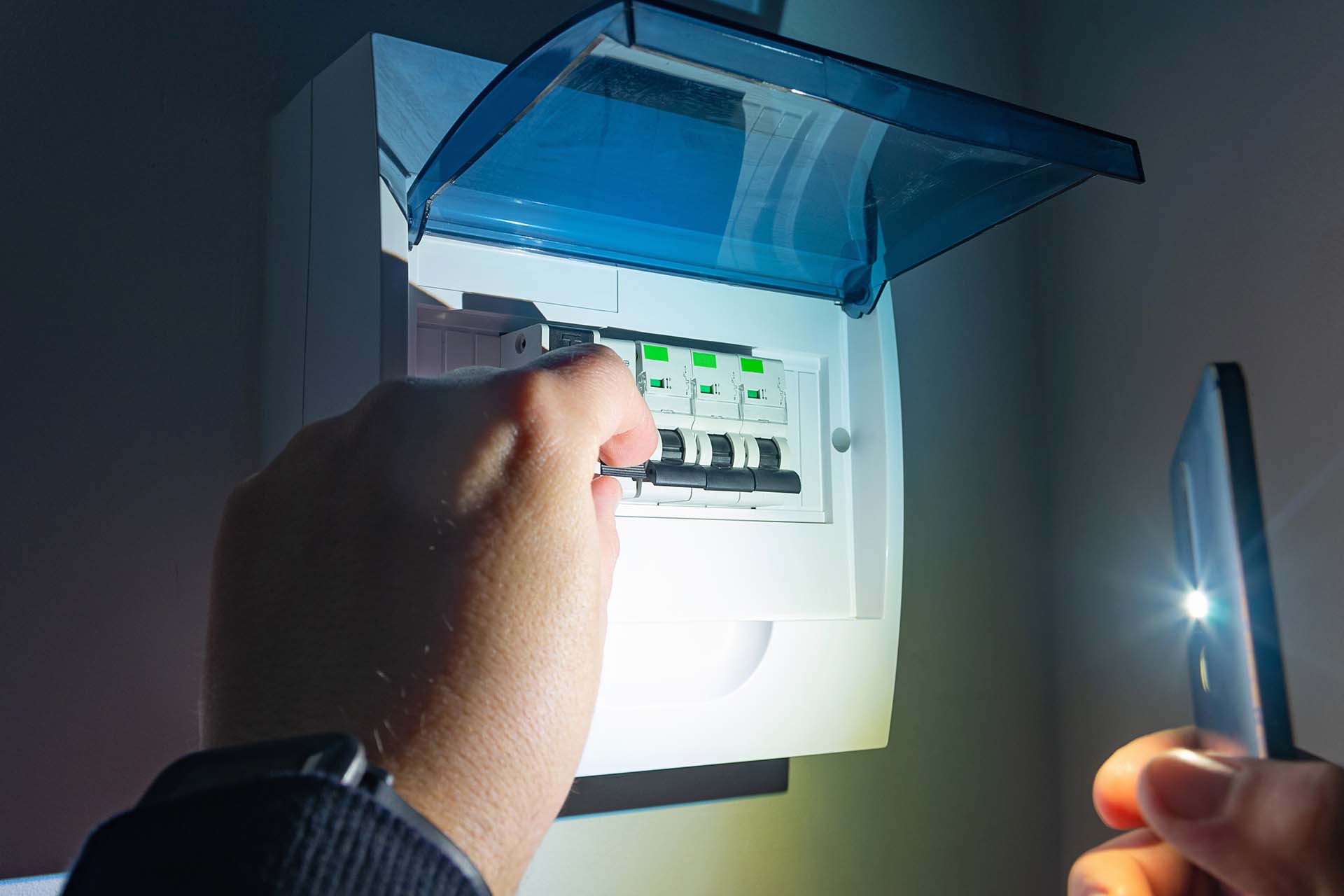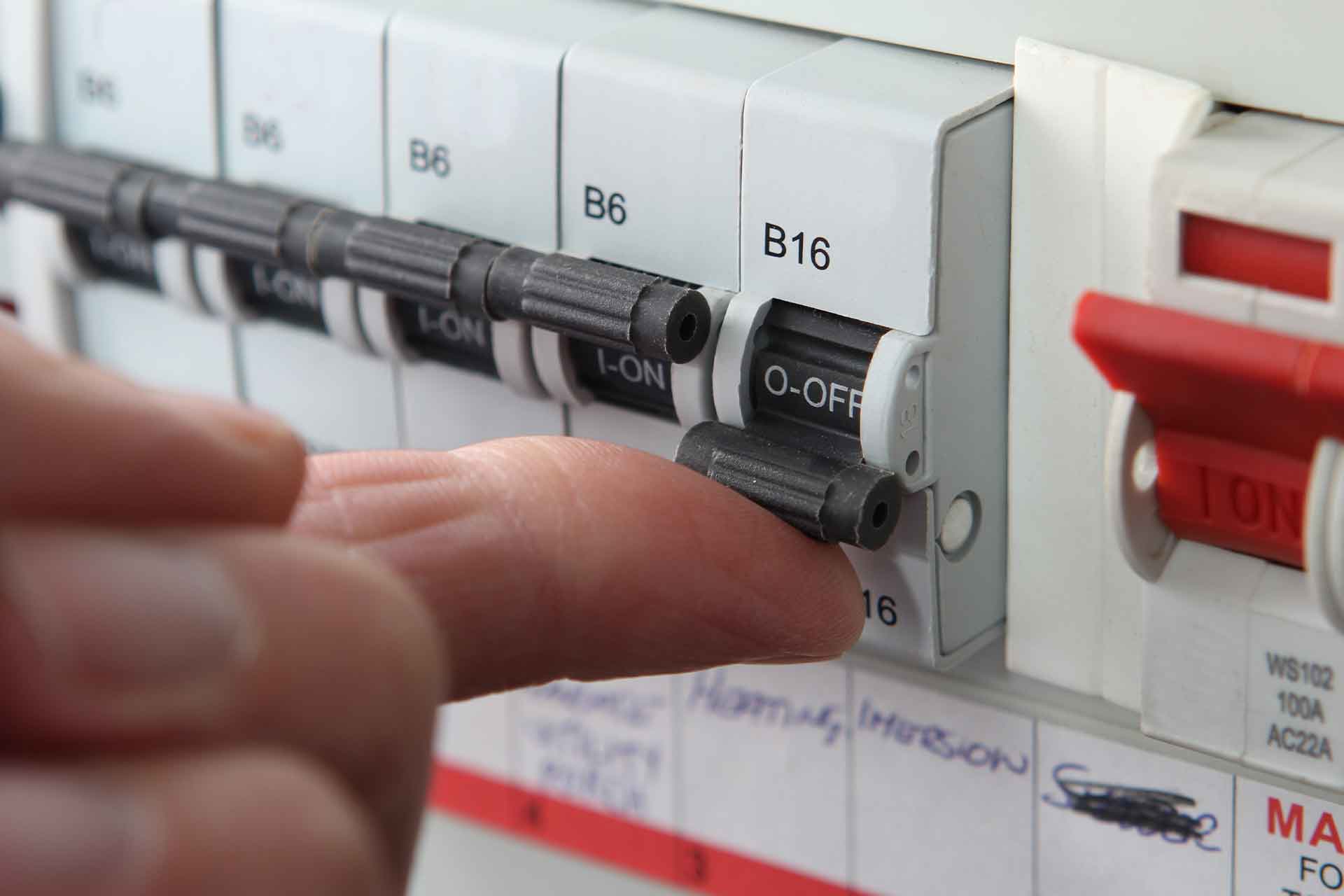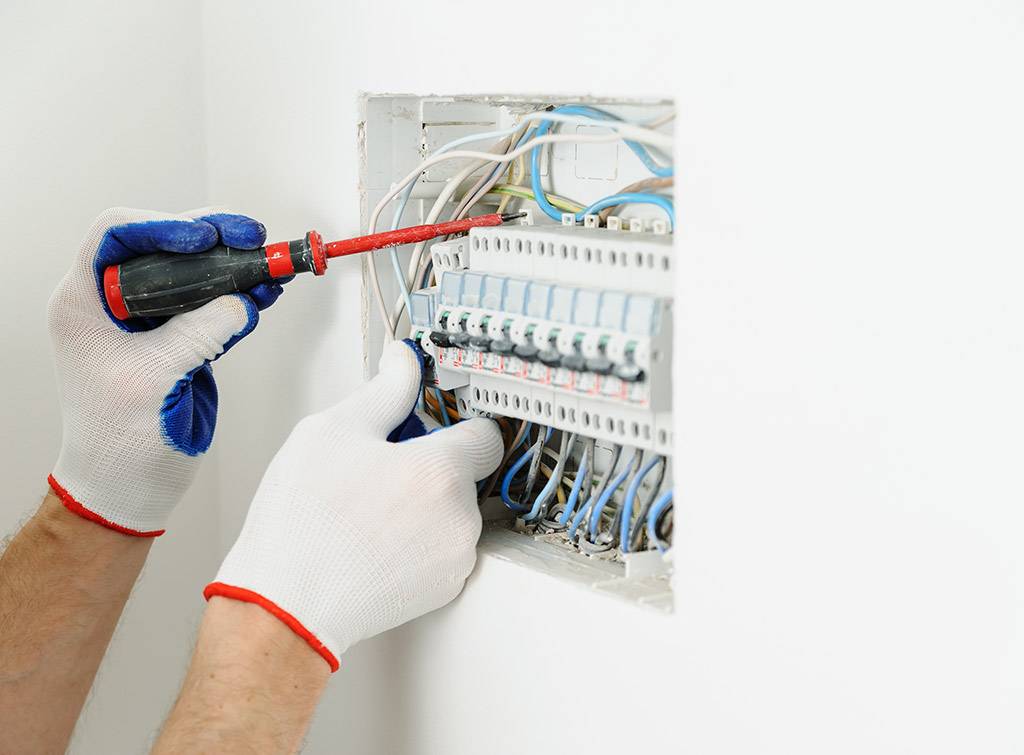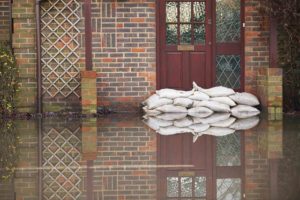What should I do when there is no electricity in my house?

If you’ve got no electricity in your house you’ll want to understand why and get the problem fixed as soon as possible.
In this post, we help you to do just that – troubleshooting the typical causes and the best solutions to get you safely back up and running again.
Why is my power out?
Suddenly having no electricity at home can be unnerving, but it’s important to stay calm.
The most common reason for there being no power in the house is a tripped switch in the fuse box.
However, it could be due to a power failure in the electricity network.
Let’s look at how to fix a power cut at home depending on whether the power outage has just affected your home or the entire area.
Or call out a professional to solve the mystery for you!
The first two checks if your electricity has gone off
1. Check your consumer unit
Sometimes known as the fuse box, it is often located by your front door, in your entry hallway, or inside an understairs cupboard.
- Check to see if one of the switches has tripped and is in the ‘off’ position (pointing downwards)
- If so, push the switch back up into the ‘on’ position to get the power back on
Sometimes you’ll have a random one-off power cut that won’t be a major issue, but if you notice them happening more than once, then you may have a bigger problem to deal with.
If that happens, contact a qualified electrician in your area to inspect your property and identify the cause of the repeated power cuts.
2. Check to see if it’s just your house with no electricity
If there’s a power cut but no fuses tripped, check to see if it’s only your house that has no power.
- If you have a power outage during daylight hours, ask your neighbours whether they have power in their homes
- If it happens at nighttime, look outside to check whether lights are on in your neighbour’s homes
What to do if there is no electricity in my area?
No electricity in your house could be due to a fault in your area, and not just your home. If you’ve discovered that your whole street has lost power, get in touch with your local network company. Here’s a list of useful numbers:
- England, Wales & Scotland – dial 105
- Northern Ireland – dial 03457 643 643
- The Republic of Ireland – dial 1800 372 999
What to do if the electricity has gone off but the fuse box has not tripped (UK)
If you establish that it’s just your home that has no electricity, and you have checked there are no issues with fuses or circuit breakers, it’s time to call an electrician to help you.
For power cuts that don’t have an obvious cause, you’ll need to contact a qualified electrician to inspect your home to identify the problem.
The power cut could be due to loose wiring, an overloaded circuit, or another potentially hazardous cause that needs addressing asap.
How to stay safe during a power cut
If other people in your street are affected, use this list below to help stay safe until power to your home is restored.
- Get help if in danger. If there is a dangerous situation associated with the power cut, contact the emergency services immediately.
- Switch off any electrical appliances that shouldn’t be left unattended, except for one light. This will help you to notice when the power has been restored
- Report a power cut to The National Grid if it’s affecting your whole street. Follow instructions from your energy provider or The National Grid if they contact you
- Avoid using your gas appliances to heat your home – doing that can lead to carbon monoxide poisoning. Be careful with other kinds of heating and lighting, like paraffin heaters and candles. In an unfamiliar situation, accidents can easily happen
- Locate a torch – keep a supply of batteries at home or use a wind-up torch for emergencies such as a power cut
- Make a simple cold meal or order a takeaway – don’t try and cook with other heat sources indoors, as this may cause an accident or injury
- Check security alarms and smoke alarms. Security alarms should automatically disarm in a power cut for safety reasons, and smoke alarms should fall back to the battery backup power. Make sure to test these systems when the power comes back on
- Stay elsewhere if needed. For power cuts that don’t have an immediate solution, make arrangements to stay with friends, family, or a neighbour until your power is back on
- Keep an old-school corded phone in the house. In case of emergencies, it’s useful to have a backup phone if your mobile battery runs out and/or your digital cordless phone won’t work
Understanding circuit breakers
You’ve probably heard of circuit breakers without necessarily knowing what they are, and you might be wondering how circuit breakers work. When it comes to power cuts, it’s helpful to know what you’re dealing with.
What are circuit breakers?
A circuit breaker is a feature of your home’s electrical circuit system that protects you from serious electrical faults that could cause major damage to your home.
In the event of a power surge or excess load on the circuit, the circuit breaker will cut off the flow of electricity to avoid any overheating that could potentially lead to an electrical fire.
The circuit breaker is what modern electrical systems have instead of a fuse box. They’re typically located in the central consumer unit of your home – where the whole system of electrical circuits is controlled.
What makes circuit breakers trip?
There are many common reasons that circuit breakers trip, including:
- Overloads – Often caused by having too many appliances plugged into a single electrical circuit
- Short circuits – Typically a sign of faulty or loose wiring or a faulty appliance/plug
- Ground fault surges – Similar to short circuits, they’re caused by a live wire touching a bare copper ground wire and needs to be fixed as soon as possible
How to replace a fuse box with circuit breakers
If you need to replace your fuse box with circuit breakers, you’ll need to call on the help of a qualified electrician – this isn’t a DIY job.
Use our handy get a quote feature and we’ll contact qualified electricians in your area for quotes.
How to change a fuse in a modern fuse box
Modern fuse boxes are otherwise known as circuit breakers and are much easier to use than old fuse boxes.
They contain a series of mini-trip switches that you reset when they trip.
The trick is to turn off all appliances, turn the trip switch back on and check the circuit is working again.
How to change a fuse in an old fuse box
If you live in a property with an old fuse box, you may need to change the fuse on rare occasions.
Unless you’re confident dealing with a fuse box, we would recommend hiring a qualified electrician to carry out any work on your home’s electrical system.
For confident DIY enthusiasts, here’s a summary of how to change a fuse in a fuse box:
- Turn off all appliances, including lights and your boiler
- Make sure the fuse box is switched off (this should automatically happen if a fuse blows, but it’s always worth double-checking)
- Inspect the fuse carriers to identify which one has blown – you’ll see it physically broken or burnt
- Loosen the screws of the fuse carrier, remove the broken fuse wire, and replace it with fuse wire of the same amperage
- Insert the newly rewired fuse carrier back into the fuse box
- Turn on the master switch, and the system should turn back on
If the new fuse, or any other fuse, blows immediately after you turn the system back on, then you most likely have a more serious problem to fix. That means it’s time to call a qualified electrician.
FAQs
What causes a power cut at home?
There are a few things that cause loss of power at home. These are often minor, such as faulty appliances that cause fuses to blow and circuit breakers to trip, and these are easy to fix.
A disruption to The National Grid usually causes an actual power cut. This could be due to bad weather damaging pylons or equipment at your local substation. Excessive heat or high demand on the electricity network can also cause a loss of power.
What to do if only my house has no power?
So you’ve checked the fuse box and no switches have tripped. Next, check to see if a light or display is flashing on your meter. This signals that electricity is coming into your home from the mains cable outside.
If you have a pre-payment meter, you may have run out of credit, so you will need to top it up to restore the power.
How much does a new fuse box cost?
The average cost of a new fuse box is around £100 – £500. If you need a new consumer unit, the cost will be somewhere in the region of £50 – £450, plus installation. You’ll also want to factor in labour costs, with the average electrician’s hourly rate being about £45 per hour.
How much does it cost to replace a fuse box in a house?
The average cost to replace a fuse box in a house will depend on the type of fuse box you have and what you are planning to replace it with. The cost of removing a fuse box is around £150 – £200.
For more information, check out our guide to the cost of replacing a fuse box with a consumer unit.
Why does my circuit breaker keep tripping with nothing plugged in?
If your circuit breaker keeps tripping even though you don’t have anything plugged in, you could have faulty or loose wiring or a ground fault. To identify the problem, contact a qualified local electrician to conduct an electrical inspection of your home.





No comments yet!